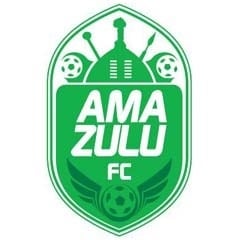
Johannesburg - From players’ salaries to special projects, the costs of running a club forever escalate while the owners watch helplessly.
That is, clubs continue to struggle financially until a good Samaritan comes along with a good offer.
City Press has learnt that the skyrocketing costs of running a club could render some club bosses bankrupt and take them out of business.
In fact, many will consider selling if they get offers.
It costs about R3 million every month to run a successful club, meaning owners have to dig deeper into their pockets to supplement the R1.5 million monthly grant from the Premier Soccer League (PSL).
It is even worse for National First Division clubs as they only get R350 000.
Special projects
It should not come as a surprise that, after losing millions trying to gain promotion to the Premiership, most club bosses will not hesitate to sell their assets and recoup the money – just like Thanda Royal Zulu has done.
While the bulk of the budget is spent on the players, there are other hidden costs that also need taking care of.
It is estimated that players’ salaries can amount to about R1 million every month and that another R1 million goes towards the technical team. Clubs also have to budget for travelling, accommodation, administration costs, facilities and special projects.
After every month-end, club bosses invariably count their losses.
Only four clubs – Kaizer Chiefs, Orlando Pirates, SuperSport United and Ajax Cape Town – have sponsors, and two – Mamelodi Sundowns and Bidvest Wits – are bankrolled by owners with financial muscle.
Clubs such as Chippa United and Mthatha Bucks have to travel outside the Eastern Cape every second game, meaning their costs are higher than most of the other sides.
“It is a real struggle and supporters do not understand. I don’t blame those who want to sell because I’d rather recoup the money and walk away,” said one club owner, who did not want to be identified.
The club boss painted a sorry picture of running a club in the country.
“Every second game, you are on the road, which means you have to budget for air travel and accommodation. For example, when we travel to away games, we have to pay for at least two nights of accommodation".
Swimming in debt
Former Dynamos boss Pat Malabela has one simple piece of advice for club owners: “If a good offer comes your way, take the money and walk away".
Malabela, who sold his Premiership status to AmaZulu for a reported R41 million in 2006, said this without even thinking twice.
“I was bankrupt when I sold my club. I didn’t even hesitate because it was an easy way out, otherwise I’d have drowned in debt".
Malabela doesn’t beat about the bush, saying most club bosses are swimming in debt but are afraid to admit it.
“I know what I’m talking about because I was there and experienced it first hand. Almost 90% of them are bankrupt, but they can’t come out in the open both in the First Division and Premiership.”
He says he might not know exactly what was in their pockets, but the signs were there for everyone to see.
Malabela says he is not surprised that most owners will not think twice if a good offer comes their way.
“Football is a very good promotional item to network and be visible. When you see something from far, it is always greener. Then you get there and you realise it is not what you expected. This was my experience in football".
He reckons local football is not yet looked at as a business, so it struggles to attract sponsorships.
“I might be wrong, but it is difficult to get an overdraft from a bank as these banks don’t trust us".
Free State Stars general manager Rantsi Mokoena says it costs about R3 million a month to run a successful club.
“A normal team needs about a minimum of R3 million to survive, and that’s still a tight budget.”
Challenges
Stars were almost sold last season, but the deal fell through at the last minute.
Mokoena paints a gloomy picture for clubs that run without sponsors.
“The economy needs to improve and corporate South Africa needs to be involved. How can the PSL be in the top 10 in the world, but clubs struggle to attract sponsors?” asks Mokoena.
“What are all these big companies doing in the country if they cannot come to the party? For any company to survive in the country, its product must be consumed by 80% of the population, but we are not getting anything in return.”
Acting PSL chief executive Mato Madlala also acknowledges the challenges to running a club and says they always pray for a season in which clubs do not pull out.




 Publications
Publications
 Partners
Partners















